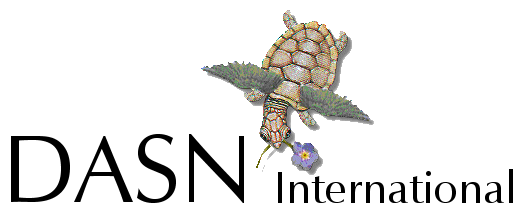Presentation by Thaddeus Raushi at Early Alzheimer's Conference, December 2001
NYC Early Alzheimer's Conference, 2nd Annual - 7 December 2001
Member of Panel on "Speaking Out"
Thaddeus Raushi, Ph.D.
Thank you for the opportunity to share some thoughts with you this morning. I will briefly describe my personal experience with Alzheimer's disease and then present several issues toward enhancing the process of diagnosis andliving with the disease. For this presentation I will use the terms Alzheimer's and dementia interchangeably.
In 1996, while my wife Sylvia and I were providing care to aging parents and just two years after earning my PhD to enrich my college counseling and teaching career, I faced the diagnosis of cancer, a rare and incurable lymphoma called Waldenstrom's macroglobulinemia. I've had chemotherapy twice and though currently in wait and watch, I am thankful for these five years. In 1997 I had an emergency craniotomy for a brain tumor. Though I have some minor losses, seizure activity, and the tumor is recurring, I am quite stable and again have much for which to give thanks. Following the surgery, unable to do well the counseling, teaching, and faculty work I had done for over twenty years, I chose an early retirement. Cognitive problems continued to persist. Then in 1998 I was diagnosed with probable Alzheimer's. What I thought had been "burn out" in my work I learned was not "burn out" at all but disease. What I thought was mental laziness when unable to follow counseling sessions or committee meetings, when I couldn't retain advisement information or a simple set of instructions, when I would forget people, was not mental laziness at all, but a dementia. Unwanted, unimaginable, unacceptable, yet a diagnosis that made some sense out what was happening in my life.
Three times I was given opportunity to reassess life's direction, face mortality and self-worth, and recapture meaning for living. The third time, though, felt so critical since what was being stolen away by the Alzheimer's was a core and precious part of me, the capacity to think.
Through this reassessment, what I have learned is to live each day to the fullest, thankful for that day, thankful for the wonderful support of my precious wife Sylvia, of family and friends, of doctors and support groups and the Alzheimer's Association. I learn to live celebrating and using the capabilities I have each day, rather than bemoaning what I've lost or will not have in the future. Instead of seeing myself as a victim, I see myself as an "Alzheimer's survivor", living each day fully aware of the disease and its progression, yet always focused on doing the best I can...with what I have...at any given time.
There are seven issues I would offer for your comment. My statements will be brief due to time limitations, though I will certainly respond later if desired.
The first issue
There generally exists, it appears, a lack of understanding by doctors, by other health professionals, and by organizational systems about the nature and characteristics of "early" Alzheimer's.
**I'm so often surprized at how many doctors and other health care professionals remain ignorant of current information about "early" Alzheimer's. There needs to be change.
The second issue
Words we use to describe Alzheimer's and people with the disease, are primarily negative, depersonalizing and emotion-laden labels. Such descriptions debilitate, rather than heal. More positive and unbiased labeling is needed within the medical, health service, and legislative communities.
**Alzheimer's is often described as a "death sentence" and the diagnosed individuals as "victims". I, and many others in early stage, do not live in "the doom of death", or as "victims" stripped of all capabilities and competencies. Yet that is what most descriptions and labels imply. Labels need changing.
The third issue
Effective referral of patients by doctors to the Alzheimer's Association is important. Closer working relationships between many doctors and Associations may enhance such referral.
** While medications help, support services are often the key to how well people live with the disease. Doctors are key influences in patients obtaining such support.
The fourth issue
Better access is needed to social security disability for people with an early Alzheimer's diagnosis.
** I know first-hand the unwhieldy, extended, and costly experience. I know of misinformation provided by professionals in the system. I know how in only minutes of a face-to-face contact with an Administrative Judge the problem was understood. I am not alone in this experience. Not only can the disease be demeaning and overwhelming, but so too can the system.
The fifth issue
Research today primarily focuses on cure, medications, and search for cause. While these emphases are highly important, I would
** The support services, treatments, and therapies that increase an individual's ability to live with the disease, to adapt and to rebuild through compensations, are rehabilitative tools. Research into finding the most effective tools would be of great benefit and would also help lead to services that span the whole progression of the disease.
The sixth issue
There are serious problems today regarding the recruitment and retention of nursing personnel, especially in nursing facilities. This has direct and serious implications for those of us with early Alzheimer's, as we face the future.
** It seems that as a society we must in some way assess our values and how these values connect to our financial resources. Salary discrepencies between, for example, professional health care providers and professional athletes, raise such value questions. We may need to address the larger picture behind the nursing shortage problem.
My last issue for consideration
Advancements in knowledge about Alzheimer's, in diagnostic techniques, and about medications encourage early diagnosis. At the same time severe, negative insurance coverage implications discourage diagnosis.
** A serious dilemma that cannot be ignored. Addressing this issue before the large onset of baby-boomers into older years may be wise.
I look forward to talking with you. Thank you for listening.
